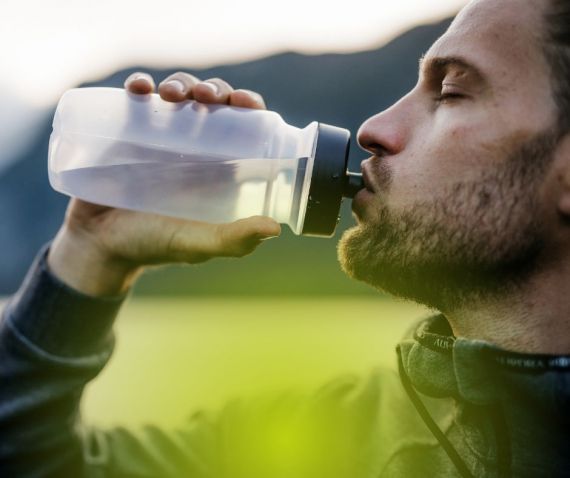Mastering Hydration for Peak Exercise Performance: Your Ultimate Guide
The low-down on exercise and hydration
Adequate fluid intake is crucial for optimal bodily function, with water being the most effective fluid. To maintain performance and endurance, replacing lost fluids during exercise is essential.
What hydration means
Hydration is the process of providing an adequate amount of water to the body. The amount of water you need depends on many different factors.
- Your weight
- The climate you are working out in
- If you sweat heavily
- Medical conditions
It is important not to rely on thirst to indicate your hydration levels. A good sign of dehydration is a lack of sweat during an intense workout, which is when you would expect to sweat. Conversely, no sweating signifies that you're both dehydrated and probably suffering from heat exhaustion.
What dehydration means
Dehydration is when your body's water levels are too low. Here are some body signals that will indicate you need water:
- Tiredness
- Headaches
- Dry or cracked lips
- Dizziness
- Muscle cramps
- Weakness
If you experience any of these symptoms and do not hydrate, your physical and mental performance is highly likely to be affected. Do not delay water replacement to the body; if you need water, you need it. It is not a good idea to exercise dehydrated.
What to drink when exercising
Water is the best fluid to drink before and during exercise; water regulates your body temperature and helps your body exercise sufficiently. Some sports drinks can be good to drink too. Sports drinks contain electrolytes and carbohydrates that allow your body to refuel during training. Although sports drinks can be helpful for intense and more prolonged workouts, they can be high in sugar, so consume them only if necessary.
What not to drink when exercising
It is best to avoid caffeine whilst working out. Whilst exercising, your body redirects blood towards active muscle groups and away from the digestive system, which slows digestion. For some, this can lead to stomach upset and digestive issues if you have consumed too much caffeine. It is also best to avoid juices. Juice isn't a good hydrator because it's packed with fructose. This slows the rate of water absorption, increasing the time it takes for cells to get hydrated.
Sweat and dehydration
When you exercise, your body sweats to try and return to its optimal temperature. As you sweat, you lose body fluids; therefore, the general rule is to stay hydrated to replace the fluids you are losing. It is important to stay hydrated to reduce the risk of suffering from heat stress, maintain normal body function, and also allow your body to maintain performance levels.
How to hydrate
There are ways to ensure you are adequately hydrated before, during, and after exercising. All three are equally important.
- Before exercising- Do not wait for your body to tell you it is dehydrating. Sip water ahead of time and prepare yourself for your workout. This will put you in the best possible position to complete your workout.
- During exercise- Make sure to combat fluids lost through sweat by staying hydrated during your workout. Between sets, take a 30-second rest and rehydrate.
- After exercising- The goal after your workout is to replace any body fluids lost while exercising. This will help to encourage and improve your recovery process.



